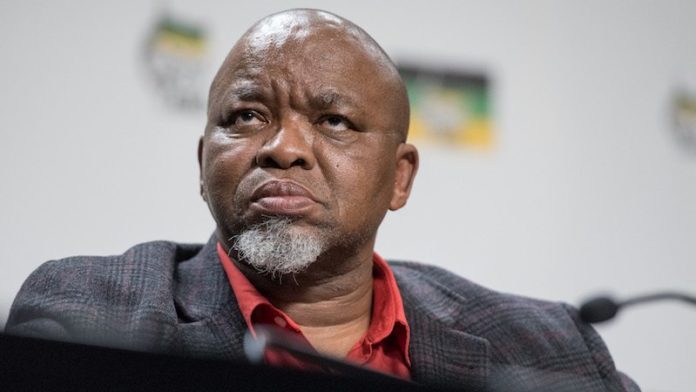
THE finalised draft of the Integrated Resource Plan (IRP), South Africa’s blueprint for its energy mix to 2050, will be discussed by cabinet next week and then opened for further public comment.
“Please engage on it,” minerals and energy minister, Gwede Mantashe, urged delegates at the second day of the Joburg Indaba in Sandton on Thursday.
The IRP, which has been discussed and revised extensively over the past two-and-a-half years, provides for both clean coal and nuclear energy in the mix, Mantashe said. “If mine owners invest in clean coal technologies, we will have coal for the rest of our lives.
“We are not coal fundamentalists, but fundamentalists about reliability of energy supply,” he said.
It was a mistake to project renewables as the enemy of every other form of energy. South Africa intended to fulfil its commitments under the Paris Agreement to reduce its CO² emissions. That meant future coal use had to include clean coal technology, otherwise the country’s coal resources would be sterilised prematurely, he said.
Coal was currently the biggest source of mining revenue for the country, with total sales of R139.4bn in 2018, according to Minerals Council SA data.
“You can switch off all our coal power stations and breathe fresh air,” he said. “What is the point of being praised when you are starving? We must build our economy and then comply.”
Mantashe confirmed that government ministers recently met suppliers of coal and renewable energy to Eskom to ask them to cut their prices, to assist Eskom out of its financial difficulties.
Coal suppliers should contribute to ensuring the high cost of electricity was addressed. The ultimate goal would be to ensure the price of electricity to intensive users like mining and manufacturing could be reduced.
At current prices, there was a flood of manganese and chrome ore to Asia for beneficiation in countries with cheaper power. “Then we are exporting jobs. We are not blaming anyone, but we should make our economy work,” he said.
On the first day of the conference, Anglo American Platinum CEO, Chris Griffith, suggested regulatory uncertainty would be helped if the minister dropped his appeal against the recent court ruling which upholds the principle of ‘once empowered, always empowered’. That refers to giving mining companies credit for past empowerment deals rather than requiring them to top up each time partners sell.
Mantashe was adamant that the judgment had to be challenged because there was still unequal ownership of the South African economy.
“We talk of black economic empowerment (BEE) as if it is a social problem. Until we understand BEE is about creating black capitalists, we cannot assess its success. Then we can talk about other programmes to benefit society and communities, like social and labour plans. Until then we are going to stay in court, fighting on principles.”
SMELLING GUPTAS
At question time, the minister was asked why he retained people with links to the Gupta family, who were close friends of former president Jacob Zuma and have been implicated in state capture, in his department.
“We have done a lot of work to clean up the department, but when you run a department you cannot smell Gupta in every corner.
“When you do that, you will clean out good people too. You have to deal with people on the basis of evidence. That is why some people are going to the Zondo commission,” he said.











